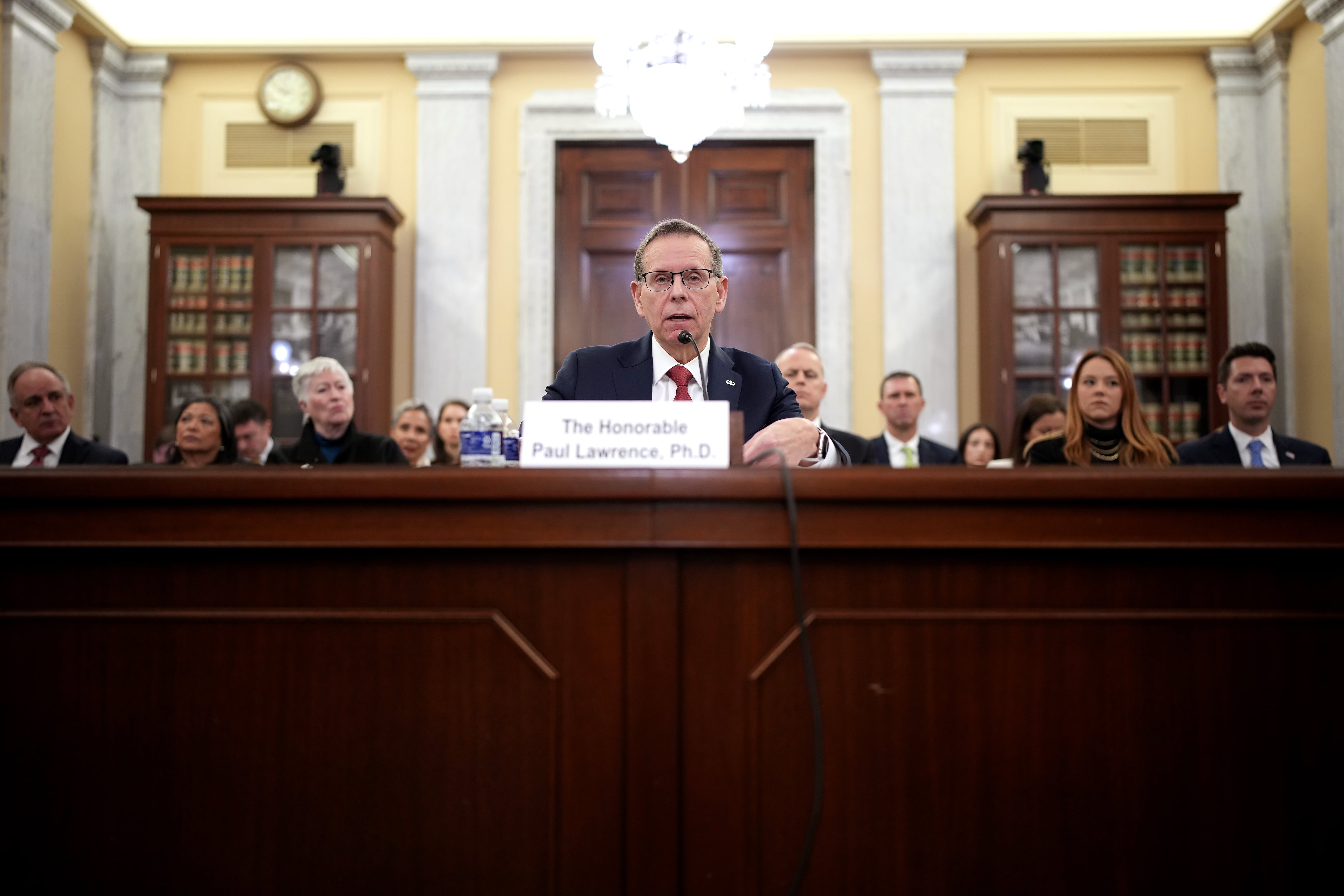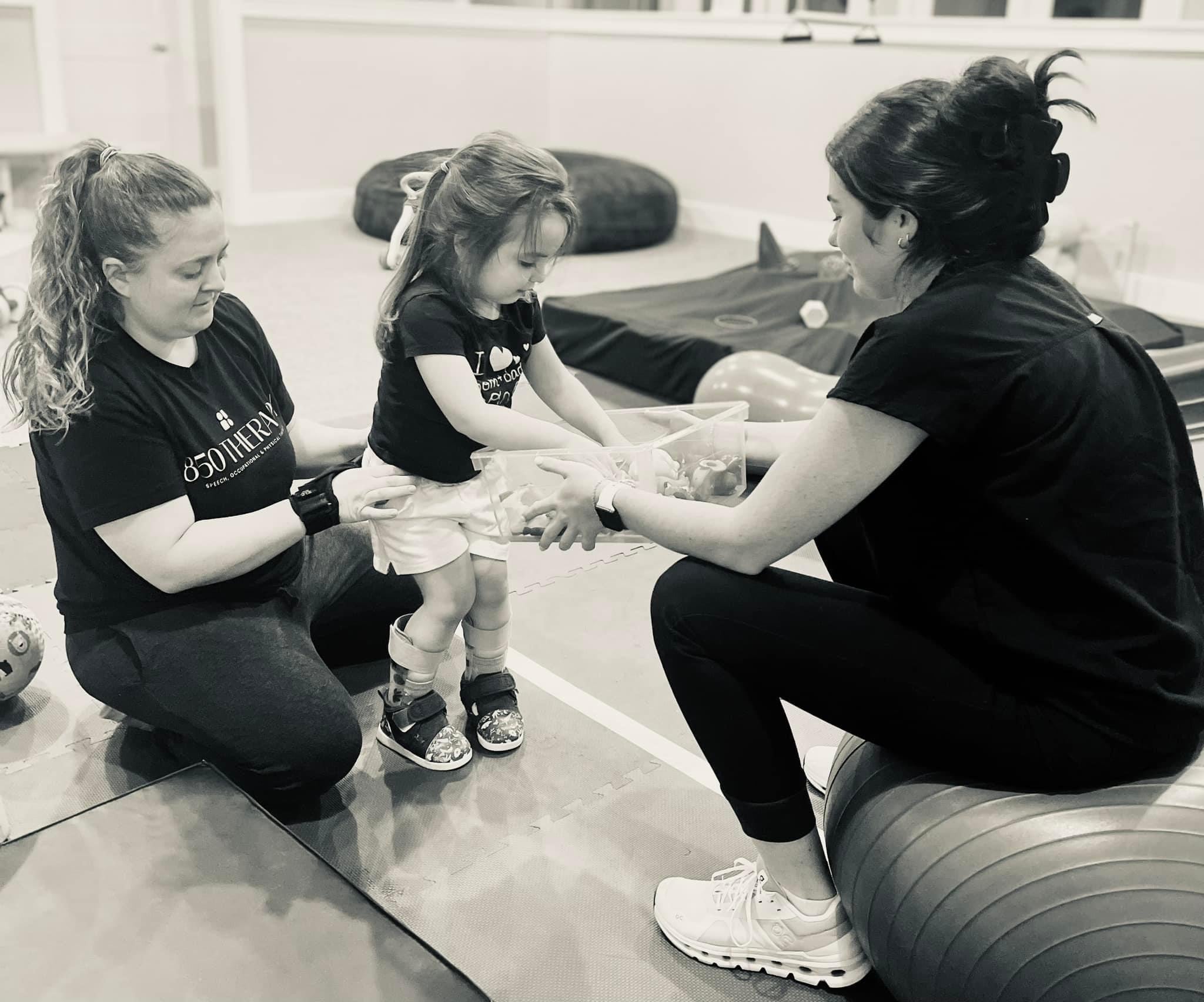FREDERICKSBURG, Va. — As the radiologist drew a tissue sample for a biopsy, Army veteran Boyd Elliott knew by the look on her face that something wasn’t right, but he wasn’t prepared for the news that followed.
He had cancer — breast cancer.
All he could think in that moment, when it seemed like the world had stopped turning, was that it couldn’t be possible.
“You can’t be telling me I’ve got breast cancer, it doesn’t happen to men,” he responded.
The disease is far more common among women, but about one of every 100 breast cancers diagnosed in the United States is in a man, according to the Centers for Disease Control and Prevention.
RELATED
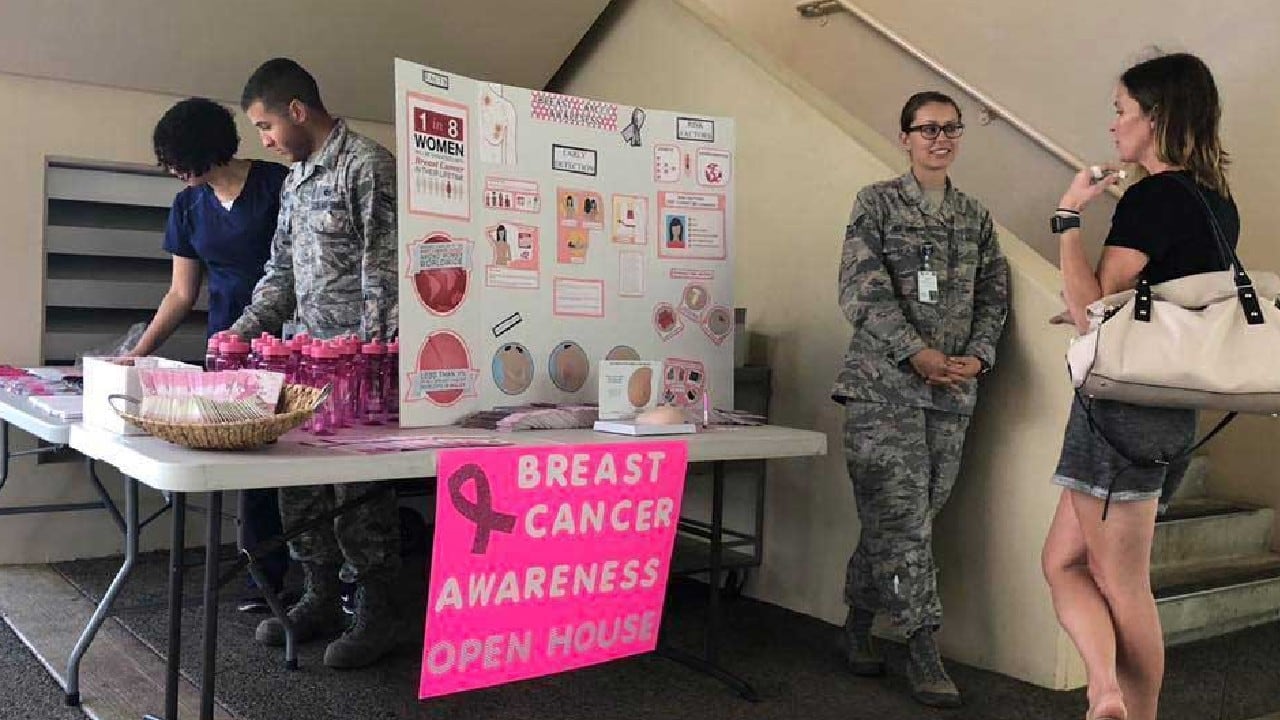
One in 8 women will develop the disease in her lifetime, while the rate is 1 in 833 men, according to the American Cancer Society.
When Elliott first noticed a hard lump on his left nipple in October 2020, the Spotsylvania County man “kind of ignored it for a week or so, thinking it’s going to go away.”
Instead, it seemed to get bigger. He didn’t want to talk about it with anyone, but finally broke down and told his wife, Paula.
“She kicked me in the butt a few times and said, You’re gonna get it checked out,” the 75-year-old said.
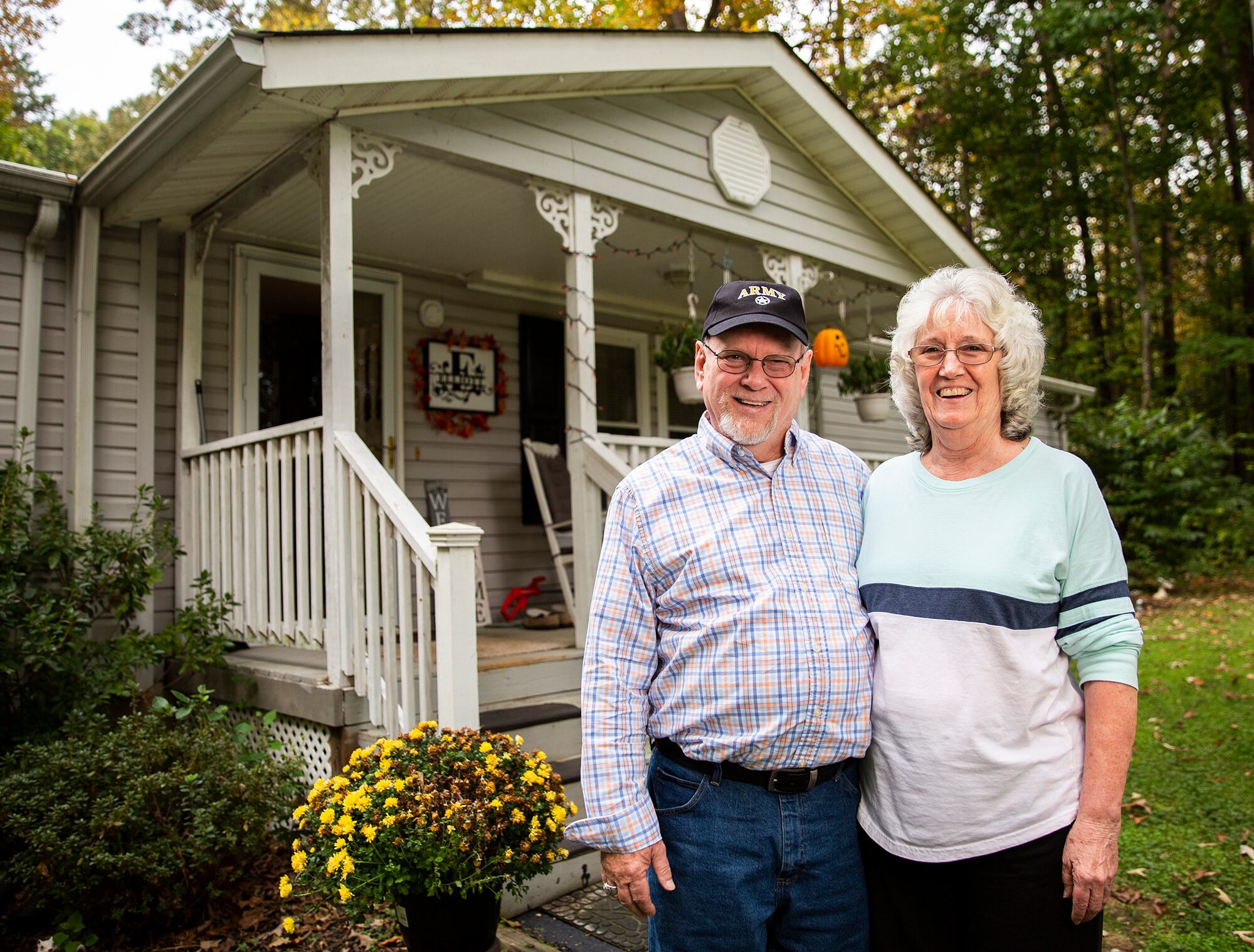
Now that he’s beyond the mammogram and biopsy, the complete mastectomy and year’s worth of chemotherapy and other cancer drugs, Elliott is glad he listened to his partner of 55 years. His cancer was stage 2, and he learned the treatment would have been far more complicated if the disease had progressed.
Even so, if his wife hadn’t pushed him to see a doctor, would Elliott have continued to ignore what his body was telling him?
“Probably,” he said. “That’s what a man does.”
‘Catch it early’
In men or women, the “behavior” of breast cancer tends to be the same, according to a 2020 report published on the National Library of Medicine website. It presents itself as a mass, has the same kind of tissue structure and responds similarly to treatment.
But men tend to have a worse prognosis, according to the study, because by the time they see a doctor, the disease has advanced. Sometimes, it’s entered the lymph nodes and spread throughout the body.
The report noted the lack of awareness among men compared to efforts to encourage women to have annual mammograms and recognize the signs of breast cancer. Think about how many pink ribbons are placed each October during national breast cancer awareness month.
In addition, men are embarrassed to say they have breast cancer because, as a participant in one American study noted, “men don’t have breasts, they have chests.”
Elliott knows “the macho part” can surface and that’s why he agreed to be interviewed. He works at Healthy Generations Area Agency on Aging and the director there, Pat Holland, told him he might help someone else.
“I’d like to let men know, it can happen and I’m a testimony to that,” he said. “If you ever feel something out of the ordinary, go get it checked out. It may be nothing to worry about, but if it is something that needs to be taken care of, catch it early.”
‘A good, good guy’
Elliott got all his care at the VA facility in Richmond, the Hunter Holmes McGuire Hospital. He’s had other procedures there and had nothing but rave reviews for the medical staff who helped him through every step of the process.
While the Department of Veterans Affairs was criticized in years past for abominably slow service — to the point that former service members died before they were treated — Elliott said things happened so quickly, it made his head spin.
RELATED
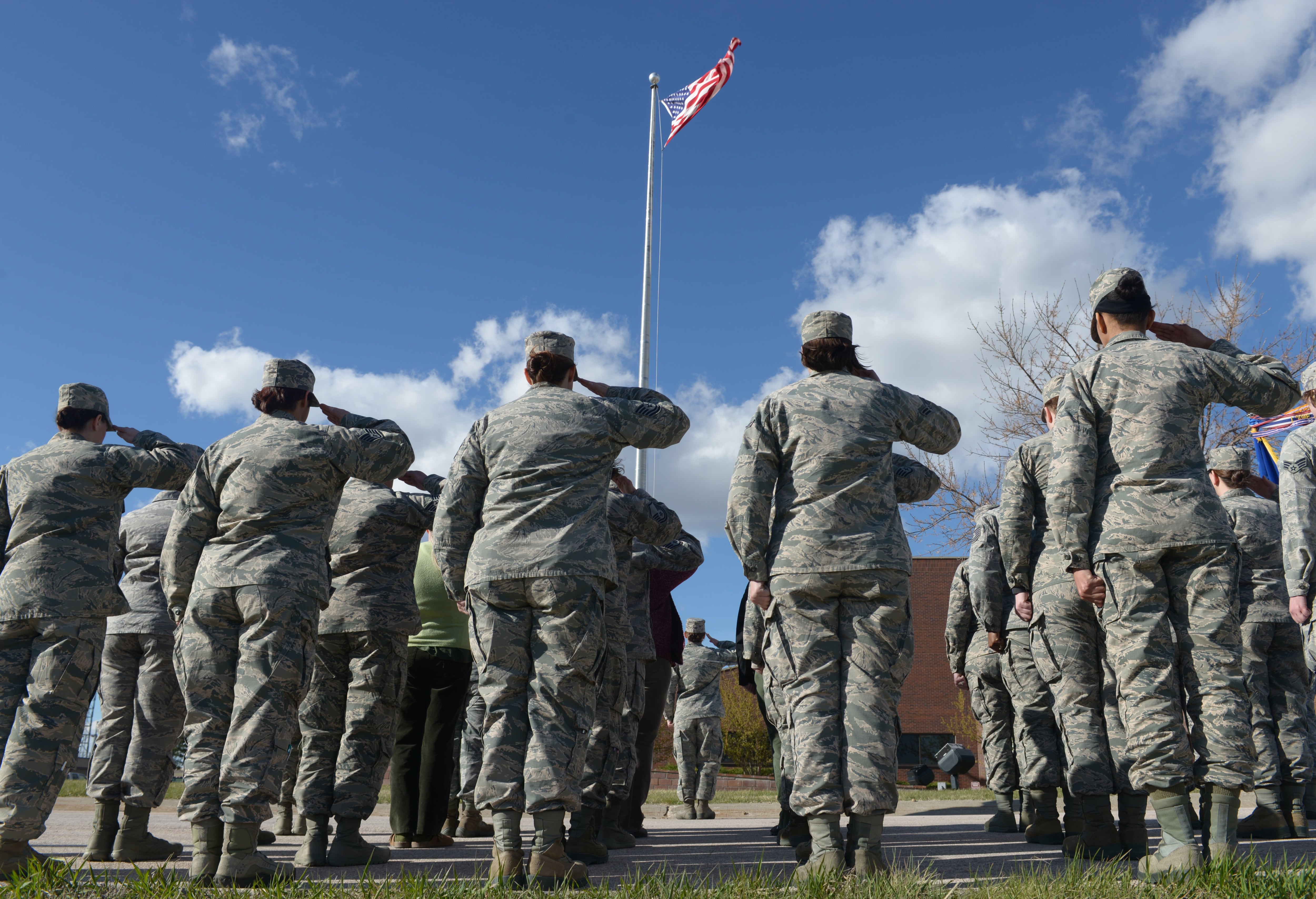
“It was boom, boom, boom, boom, boom,” he said.
In a span of five weeks, he had his first consultation, got a mammogram and biopsy, had surgery and began chemotherapy — six doses over the course of eight months.
The chemo made him weak, claimed every hair on his body, sometimes left him nauseous and, for about a week and a half, made everything he ate taste like sugar, which was not a good thing.
But Elliott, an Army veteran who did one tour in South Korea and worked as a civil engineer, kept going as much as his body would allow.
He’s been a fleet supervisor at Healthy Generations, overseeing about a dozen drivers and the agency’s vans, for 13 years.
Co-workers say his pleasant temperament never changes, not even during the rigors of cancer treatment.
“He will go out of his way to make sure that everything goes right,” Holland said. “He’s just a good, good guy. I wish I had 50 of him.”
And that many jars of his famous pickles.
‘King Pickle’
When Elliott went through chemo, his co-workers got him a blanket to wrap around himself and it had a big pickle on it.
“He is Mr. Pickle,” said Angie Snyder, director of operations. “He’s actually King Pickle now because it’s been like three years that he’s won at the State Fair.”
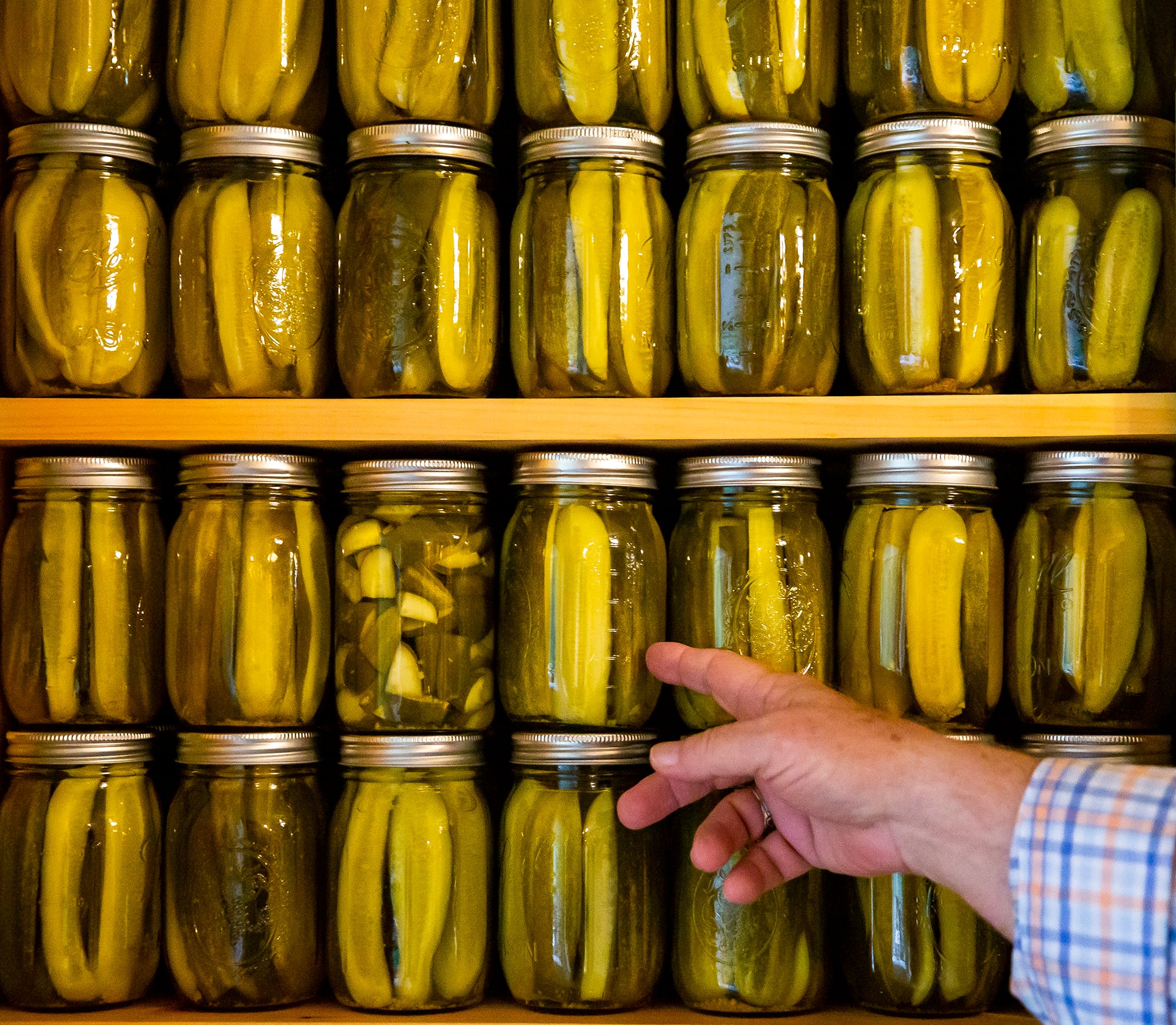
Elliott has always been a big fan of kosher dill pickles and decided about a decade ago to make his own. He and Paula had a garden and he planted some pickling cucumbers and mixed together a recipe he thought would work.
The first batch didn’t taste bad at all, so he made more and started sharing them with friends and co-workers, at church socials and with family. He tweaked the ingredients until he got the taste he wanted and people told him he should enter them in the fair.
He finally gave in, and in 2018, took a jar over to the Fredericksburg Agricultural Fair, paid a $1 entry fee and won a blue ribbon and a $5 premium. When people bugged him to take his fare to the State Fair of Virginia, he agreed in 2020—and has won first prize three years in a row.
On the doors of a pickle cabinet, specially made for him by his brother-in-law, are four ribbons from Fredericksburg (three firsts and one second) and the three top State Fair awards.
He’s won a prize every time he’s entered. He enjoys the bragging rights as well as knowing he’s made something that people enjoy.
“They’re amazing, spectacular and we look forward to them every time we get them,” Snyder said. “They’re just perfect pickles, they’re zesty and crisp, they have a nice scent, they’re just delicious.”
Elliott gives away about half of the 90 jars he makes a year including a pint apiece to the 25 or so employees at Healthy Generations.
“If I didn’t, they’d would probably kick me out,” he said, sitting at his desk behind a pencil cup that announces: “I’m kinda a big dill.”
Elliott recently scaled back his work schedule to three days a week—not because of the cancer scare or his health. He said he feels fine. He has diabetes, but it’s well-managed.
He would like to have a little more time with the woman who saved his life by making him go to the doctor. Plus, he said he just wants to “slow down a little” after three-quarters of a century in high gear.
He probably wants to make more pickles.


